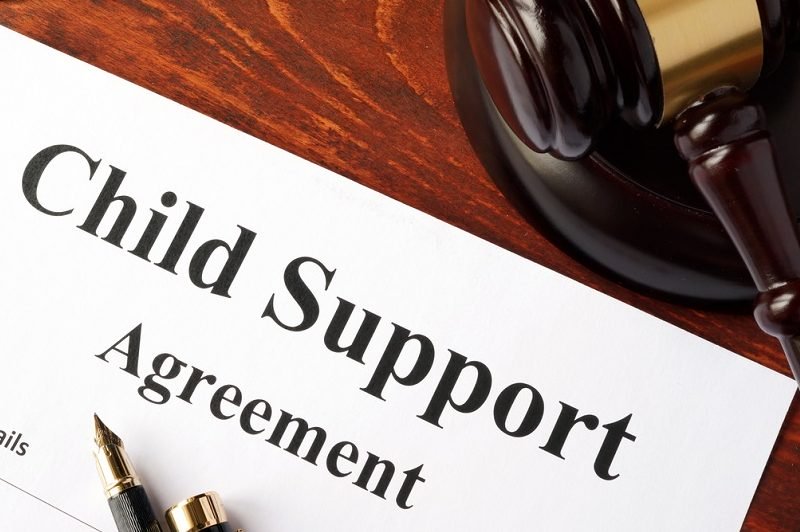Contact our Child Support Lawyers Today for More Information

When it comes to child support, both parents tend to have many questions. One of the most common involves property liens. The flat out answer is that the custodial parent, or parent with the most custody, may place a lien on your property if you owe child support. This, essentially, alerts the world that there are legal claims against you for money.
Who Is The Custodial Parent?
Any family law attorney in Los Angeles will reveal that a custodial parent is the primary parent who lives with the child. This designation can be determined by a court of law, an informal agreement between both parents, or if there is only one parent who is involved in a child's life.
What Is Child Support?
Lawyers for unpaid child support can provide you with specific answers to your questions regarding the government mandated assistance. However, it's mostly defined by many states as financial support to cover the costs of basic needs for a child. Basic needs include housing, food, and clothing. Some states can include a broader range of expenses like education fees, childcare, and medical care.
How To File And Enforce A Property Lien
While it's always advisable to speak with an attorney to understand the specifics involved in property liens for unpaid child support, we're going to take a broad look at the process. The custodial parent will need to file a lien with the office where the property is registered. This is typically the county recorder's office.
Lawyers will reveal that liens placed on a home will remain there until one of two circumstances is met. The first circumstance will be if the custodial parent agrees to remove the lien from the property. The second circumstance is when the child is no longer entitled to support, and you've paid all of the arrears. Again, one of these two circumstances must be met for the property lien to go away.
One part of the lien process that does vary by state is whether or not the custodial parent needs a judgment first. In some states, the law requires the custodial parent to get a judgment for the arrears before any lien can be placed on the property. Other states will allow a lien to be placed as soon as the court-ordered support payments are missed. You can figure out the specific procedures in your state by visiting the Office Of Child Support Enforcement.
What Happens Once The Lien Is Placed?
Once a lien is placed, the custodial parent has a couple of options. They can force the sale of the property with the help of Los Angeles lawyers for property liens. Or, they may wait until the property is refinanced or sold to get the money that is owed to them. If you need legal help for child support in this scenario, you should talk with a dedicated legal professional to determine what you should do.
The parent getting the lien placed on their property can go before a judge to oppose the lien. At these hearings, it must be proven to the judge that the property lien is hindering your ability to pay the child support arrears. It's highly suggested to have support documentation like loan rejection letters to back up your case.
How To Determine What Assets A Parent Owns?
Not all child support cases are cut and dry. Some custodial parents may be dealing with a parent who is no longer in the town or state. With the help of a family dispute attorney, you can actively find any assets that the other parent has. This is done via the Data Match System. This is a system that is utilized in all 50 states to track assets that are owned by parents who have past-due support obligations.
These systems are accessible by banks, insurance companies, and even brokers. These businesses must update the account information for any client who has past-due support obligations. The Data Match System is considered the property of each state's child support enforcement agencies. With the help of this system, the custodial parent can locate all assets that the other parent has so they can place a lien on them.
What Are Other Ways To Collect Child Support?
Child support has become more common over the last few decades than ever before. This has caused both agencies at the state and federal levels to get involved in helping custodial parents collect support payments. Apart from property liens, there are many other methods a custodial parent can use to collect child support arrears.
In most states, the custodial parent will first need to go to a judge to get an official judgment for the child support arrears. Once they have an official judgment in hand, many collection options become available to them. The most common is wage garnishment. This is where money is collected automatically from the employer of the parent who owes support arrears.
One unsuspecting instance of where a custodial parent can take money for past-due child support is through the IRS. If the parent in arrears receives a tax refund, the IRS can seize that refund and redirect it to the custodial parent. Again, this process involves having a legal judgment to enforce.
Government databases have been established to assist with the tracking of parents who owe child support. This information is readily shared between all 50 states. Each time an employee is hired, the employer must forward the employee's information to their state's child support enforcement agency. The agency will proceed to send the information to the National Directory of New Hires. If it's determined that a new hire owes child support, the National Directory will implement income-withholding orders.
Collecting unpaid child support is a process that the government takes very seriously. With the help of lawyers for mother-related child care assistance, you can learn about all the collection opportunities that are currently available to you. If you need legal help for child support, we highly recommend reaching out to our law firm.
